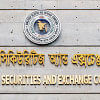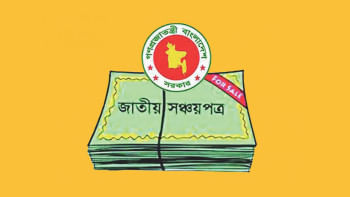Allure of bonds, forced selling blamed for stock market rout

The recent bear run of the stock market indices mainly resulted from forced sales, fund transfers to treasury bonds, bank merger decisions and a lack of good governance and a dearth of quality initial public offerings (IPO), according to stakeholders.
Listed state-run companies recently issued new shares, which diluted their earnings per share and this was another reason behind the fall in share prices, they said.
The explanations came at a fact-finding meeting called by the Bangladesh Securities and Exchange Commission (BSEC) at its office in the capital over the drop in indices.
In the two and a half months preceding last Sunday, the DSEX, the benchmark index of Dhaka Stock Exchange (DSE), dropped 794 points, or 12 percent.
However, it edged up 21.16 points, or 0.37 percent, from that on the day before to close at 5,675.87 yesterday.
The fall prompted the regulator to sit with the CEOs of 10 brokerages which account for the highest volumes of trade alongside leaders of DSE Brokers Association of Bangladesh and Bangladesh Merchant Bankers Association.
Saiful Islam, president of the DSE Brokers Association of Bangladesh, told The Daily Star that he had highlighted the matter of forced sales at the meeting.
If brokerage houses and merchant banks lend funds to investors to buy stocks and the stock price falls by a large extent, the brokers first call the investors to repay their loans and then opt to sell the shares by themselves in what is called forced sales.
Islam recommended revising margin loan rules, citing that those had become outdated and were allowing excessive amounts of funds to be lent out by merchant banks to shareholders.
This leads to an avalanche of forced sales when the market tends to fall, he said.
Although the prices of many stocks are currently very low, investors were not buying those for a lack of knowledge about the market fundamentals, he said.
Companies disclose their financials on their websites but investors do not go through those and therefore fail to realise their potentials, said Islam.
The companies should arrange discussions with analysts so that general investors can learn about such issues, he said.
Listed state-run companies issued a huge number of shares to the government against share money deposits, causing their earnings per share alongside the market indices to fall, he said.
Share money deposit is money the government paid in exchange for shares that had not been acquired up until recently.
A top official of a leading brokerage firm, preferring anonymity, said many investors who hold large amounts of shares are transferring their funds for the purchase of treasury bonds as the latter's yield rate is more lucrative.
The market will not bounce back with such meetings and the regulator should go back to the basics, allowing IPOs of only those companies which have good performance records, he said.
Over the past month news has been going round that several banks would be merged with some troubled lenders. Shareholders are losing interest on the banking sector for apprehensions over a drop in their future dividends, he said.
To bring back vibrancy, the regulator must stop a section of investors from manipulating the secondary market, he added.
Chairing the meeting, Shaikh Shamsuddin Ahmed, a commissioner of the BSEC, said the opinions of the stakeholders would be taken into account in order to strengthen the market.
He hoped for the market to rebound soon as the economic situation gets better.
Mohammad Rezaul Karim, spokesperson of the BSEC, requested the stakeholders to increase their investments.

 For all latest news, follow The Daily Star's Google News channel.
For all latest news, follow The Daily Star's Google News channel. 








Comments